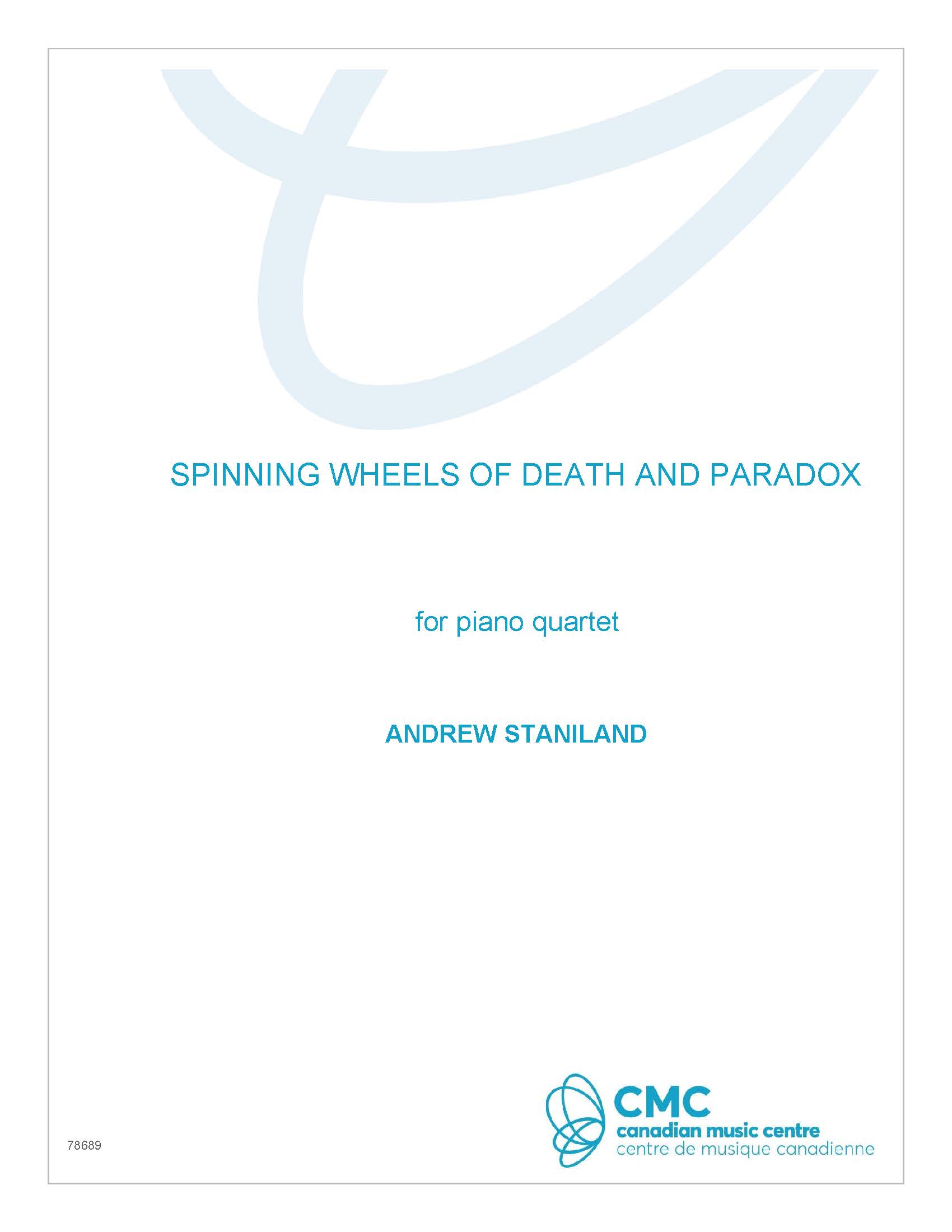Spinning Wheels of Death and Paradox
for piano quartet
Composer’s note:
Spinning Wheels of Death and Paradox is a nod to Aristotle’s famous wheel paradox, which I encountered in Amir Alexander’s book The Infinitesimals.
“Aristotle’s wheel paradox is a paradox or problem appearing in the Greek work Mechanica, traditionally attributed to Aristotle.[1] It states as follows: A wheel is depicted in two-dimensional space as two circles. Its larger, outer circle is tangential to a horizontal surface (e.g. a road that it rolls on), while the smaller, inner one has the same center and is rigidly affixed to the larger. (The smaller circle could be the bead of a tire, the rim it is mounted upon, or the axle.) Assuming the larger circle rolls without slipping (or skidding) for one full revolution, the distances moved by both circles are the same. The distance travelled by the larger circle is equal to its circumference, but for the smaller it is greater than its circumference, thereby creating a paradox.” – Wikipedia
Musically, the wheel paradox inspires the form of the work, as well as the gestural, melodic, and rhythmic ideas. I imagine this work as a sort of theme and variations, with the sections of the piece as embedded spinning wheels. The work moves freely between these contrasting sections, often without transition. The variations occur across a continuum of harmonies, from chaotic and chromatic to strongly rooted and modal. Similarly, in time/rhythm, the wheel paradox inspires motifs that are sometimes highly compressed into microgesture (such as a blast of 32nd notes occurring in less than a second), and sometimes stretched out to encompass whole sections (several minutes in duration). Gesturally, some sections depict the wheel paradox as musical loops or riffs, where each member of the quartet plays a different rotation of musical material, creating a complex rhythmic texture.
Despite the colourful title and the extramusical inspirations, the piece does not take any of this too seriously. These ideas are inspiration – points of departure, beginnings. They are a title and a spark that ignites what I hope to be joyful, inspiring, perplexing, provoking, and enjoyable piece of music. It has been a pleasure to write this work in collaboration with the Flex Ensemble, to whom this work is dedicated.
Andrew Staniland, 2022

